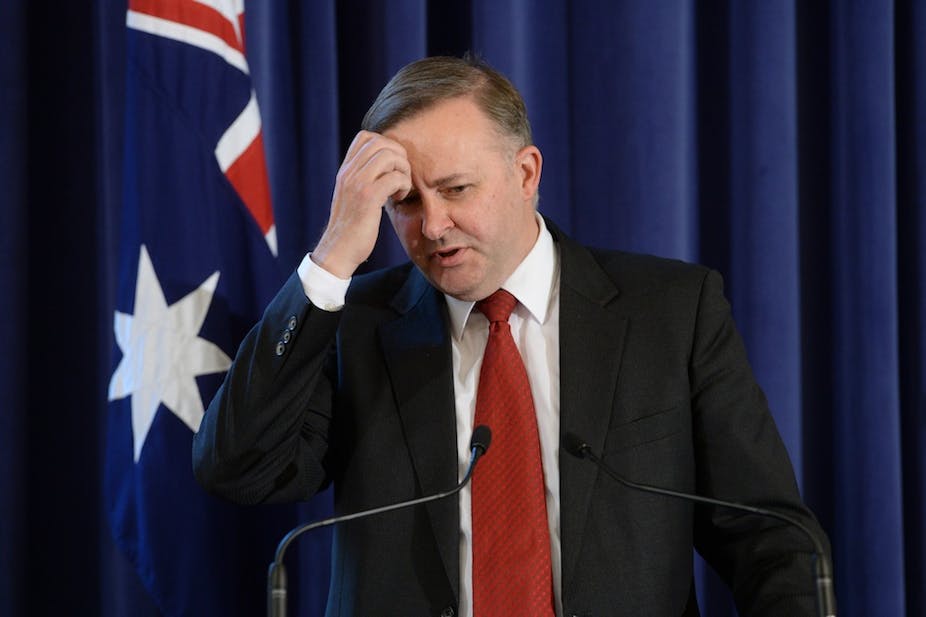Labor party branch members are set for their first ever say in who should be the ALP’s leader, after Anthony Albanese and Bill Shorten both nominated for the post.
The contest will run for around a month, with the rank-and-file members having 50-50 weighting with the caucus in the result.
Albanese, who has been deputy leader, is from the Left and is thought to have strong support in the party at large, while the right wing Shorten goes into the contest favourite to win the caucus vote.
Albanese, making his pitch at a news conference, said Labor needed to use its period in opposition to encourage new ideas and new policies. He urged a move away from just tactics to vision, and a step back from the 24 hour news cycle.
He was running because he firmly believed he was the best candidate to lead Labor back into government at the next election. “I’ve devoted my life to the service of the Labor party and the service of the nation.”
He outlined the multiple portfolios he has held, including transport, infrastructure and recently, responsibility for broadband; touched on his upbringing as the child of a single mother on a disability pension; and also referred to his negotiating skills in what he said had been the most difficult parliament since federation.
The four-point platform he outlined included the need for a strong economy, innovation and opportunities, a sustainable Australia, and a fair go for all. He also put a hard line on sticking to Labor’s carbon policy, which indicates he would want the opposition to vote against the Coalition’s repeal legislation.
The two contenders will debate each other around the country. Albanese said the rank and file ballot process was “an important empowerment of the Labor party membership”. Up to 40,000 members are eligible to vote.
Chris Bowen, the outgoing treasurer, will be interim leader and frontbenchers will keep their old jobs until a caucus meeting elects the deputy and other leaders and the new frontbench.
Bowen said both Shorten and Albanese had told caucus their campaigns would be based on policy, ideas and the future. They warned their supporters not to get personal, saying they would deal with anyone who did.
The ballot will be arranged so that rank and file and the caucus cast their votes without knowing what the other half is doing.
In face of some critics saying there could be a problem with the caucus voting one way and the party at large the other, Bowen said the incoming leader would have “more legitimacy than any other political leader” in Australia’s history because of the nature of the vote.
Although there will only be two candidates, nominations will remain open until next Friday, and ballots will go out to members the following week. The ballot will then remain open for a fortnight, Albanese said.
Bowen also said Kevin Rudd had given a “moving and inspirational report” at the caucus meeting, taking responsibility for the result but also noting the many Labor MPs who had been returned.
The new rule for electing the leader was proposed before the election by Rudd when he became leader and agreed to by caucus. Some Labor members are dubious about it, and former front bencher Stephen Conroy lashed out this week. But it will be highly popular with the rank and file.
Bowen stressed that the opposition would hold the new government to account while the new leader was being chosen.
Meanwhile, Nationals MP Barnaby Joyce, who has moved from the Senate to the lower House, has been installed as the party’s deputy leader, a staging post in his ambition to be leader. He beat John Cobb from NSW. Nigel Scullion, formerly deputy leader beat Fiona Nash for the party’s Senate leader. She remains deputy Senate leader.
Prime minister-elect Tony Abbott told the Coalition MPs’ meeting to “savour this moment” of victory – but only briefly.
“We will now move purposefully, calmly and methodically to deliver on our election commitments to build a stronger economy for a stronger Australia.”
He said this was “probably as well-prepared an opposition as has ever gone into government.”
“The challenges are considerable: we must stop the boats, we must scrap the carbon tax, we must build the roads and we must get the budget back into the black.”
He said the Coalition had “won the trust of the Australian people. Our challenge now is to earn it and to keep it”.

